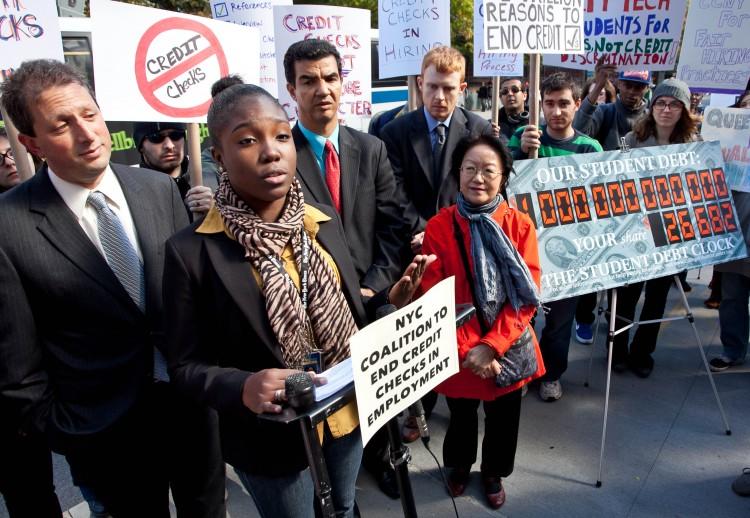NEW YORK—As the unemployment rate in New York City continues to hover at nearly 10 percent, City Council members hope to amend local laws to remove one potential road block in the hiring process: poor credit reports.
In May, Councilman Brad Lander introduced Intro 857, which would prohibit discrimination in the hiring, firing, or promotion process based on one’s consumer credit history. On Tuesday, he stood alongside students at Borough of Manhattan Community College to drum up support for the bill, which will soon be moved to a hearing before the City Council.
“There is not one shred of evidence that folks who have bad credit reports would be anything less than very good employees,” Councilman Lander said, adding that credit agencies have also admitted that.
With the cost of higher education rising, students have paid particular attention to the proposed legislation.
Councilman Dan Garodnick, one of 35 council members co-signing Intro 857, said the cost of a four-year degree was 18 percent of average household income in 2000. Today that cost has risen to 25 percent.
Bill Would Ban Credit Checks by Employers
City Council members hope to amend local laws to remove one potential road block in the hiring process: poor credit reports.

Shadae Blair, student government senator at Borough of Manhattan Community College and board representative from New York Public Interest Research Group speaks at a press conference Tuesday to call on the City Council to ban credit checks by employers. Amal Chen/The Epoch Times

Kristen Meriwether
Journalist
|Updated:





